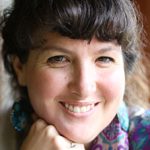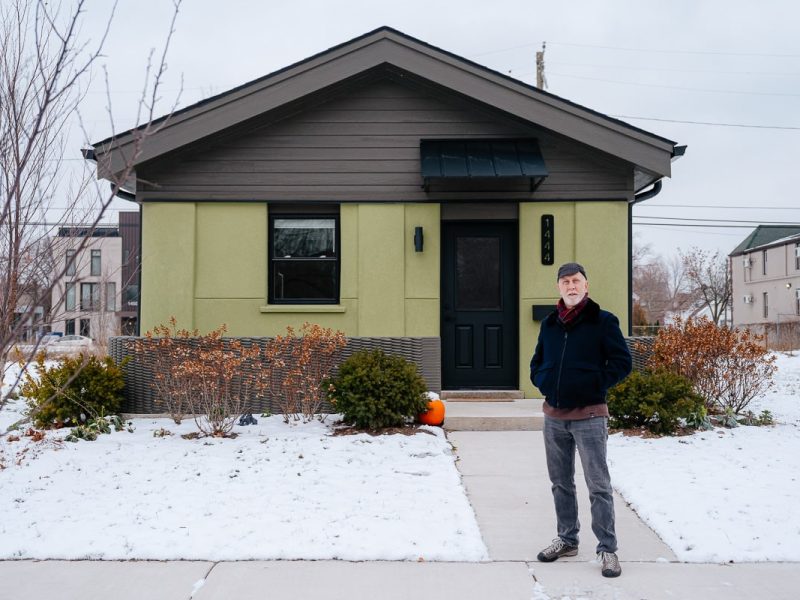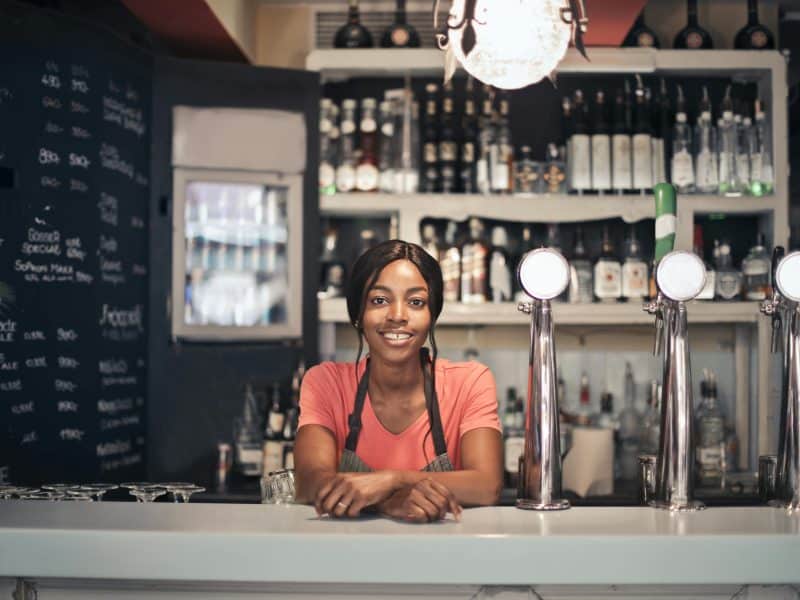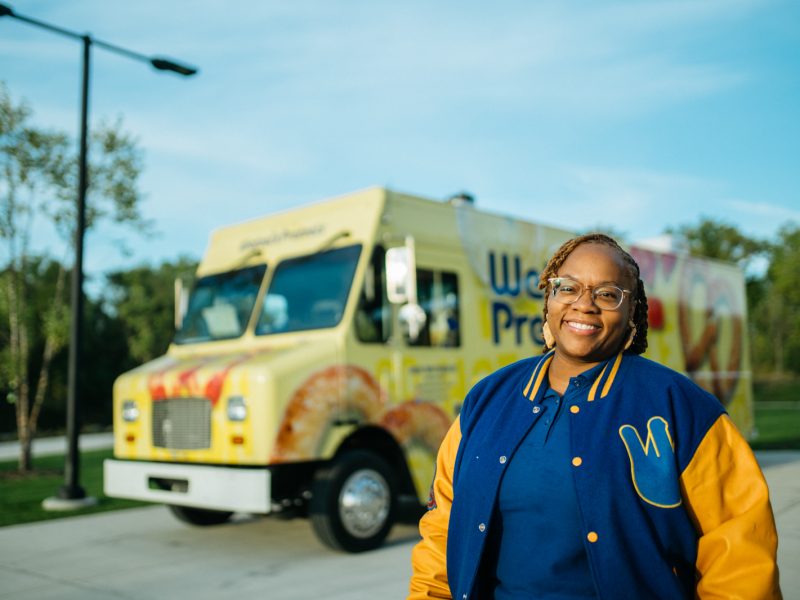Parker Village in Highland Park continues growing green tech to revitalize the ‘city of trees’
Juan Shannon set out five years ago to establish a smart neighborhood in Highland Park. With a new solar-powered cafe and expanding urban farming initiative, the developer continues to grow green technology in his community.
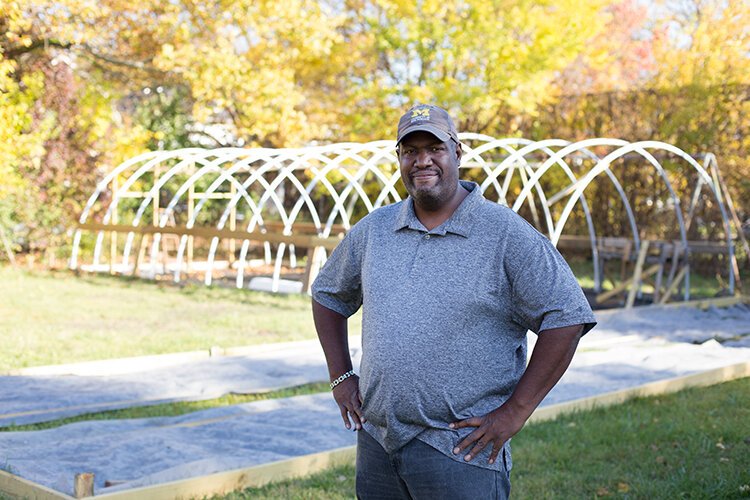
Juan Shannon remembers growing up in a different Highland Park than he sees now. He was born and raised in this enclave surrounded by the city of Detroit, known as home to Henry Ford’s early automotive factories, the Chrysler Corporation’s beginning, and Lawrence Technological University’s first campus.
“It was a pretty exciting youth,” Shannon says. “We had the best nursing school in the country. There are so many memories, to see all the devastation that has happened in the years since, it is quite disheartening.”
It’s these memories that fuel Shannon’s current project, which involves turning abandoned school grounds and houses into the heart of a multimillion-dollar project to develop a smart neighborhood and urban farming operation.
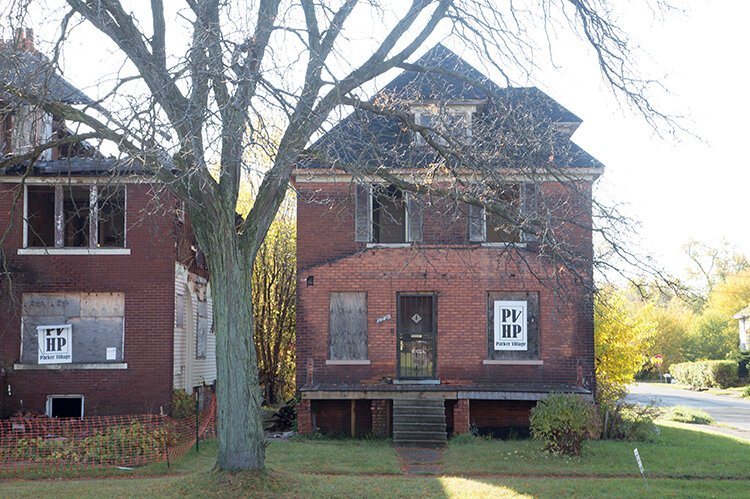
Shannon started the process for Parker Village in 2015, with the purchase of 43,000 square feet of property at the former Thompson Elementary School, and quickly added 10 residential properties, which he plans to develop into townhouses. But it isn’t enough to just be developing — Shannon and his team want to develop in a sustainable way.
He teamed up with architect and planner Paul Bierman-Lytle, whom Shannon describes as the “godfather of sustainable development” to create a plan that would see systems that could be self-supporting. Utilizing green technologies, Parker Village houses solar street lights, electric vehicle charging stations, an aquaponic garden, and plans for net-zero residences. It seems fitting for an area once dubbed “the city of trees.”
Bierman-Lytle says he admires Shannon’s vision, and sees the use of renewable energy, water conservation, waste reduction, and food production as an example for other areas in an initiative that is “replicable, affordable, and authentic.”
“Too often, community developments fail to reach an integrated systems approach,” he says. “Parker Village addresses the Highland Park community, avoiding the temptation by developers to focus on the quick return. [Shannon] has creatively built a homeowner and commercial enterprise model that will make Parker Village an affordable, yet progressive neighborhood.”
This year, Shannon saw the installation of a “solar pergola” at the site, which will power the village’s off-grid health-oriented cafe. The cafe is housed in a mobile construction, powered by nine kilowatts of solar energy, and will draw from produce grown in the village’s farm.
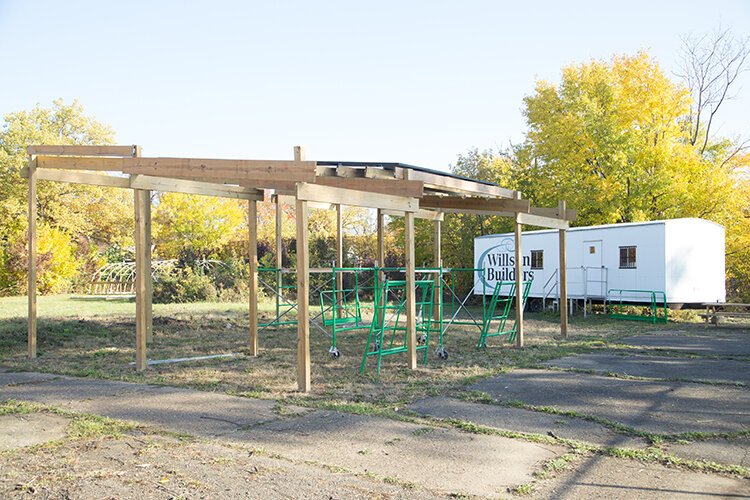
The solar-powered restaurant is the first stand-alone project of its kind in the U.S. and the latest in a long list of firsts for the village. In 2018, the village installed one of the earliest solar smart streetlights in the Midwest and a second solar installation in 2019 saw a water and power shed constructed as a joint project with Soulardarity, Ryter Cooperative Industries, Appropriate Technology Corp, and students from the Black Caucus Foundation.
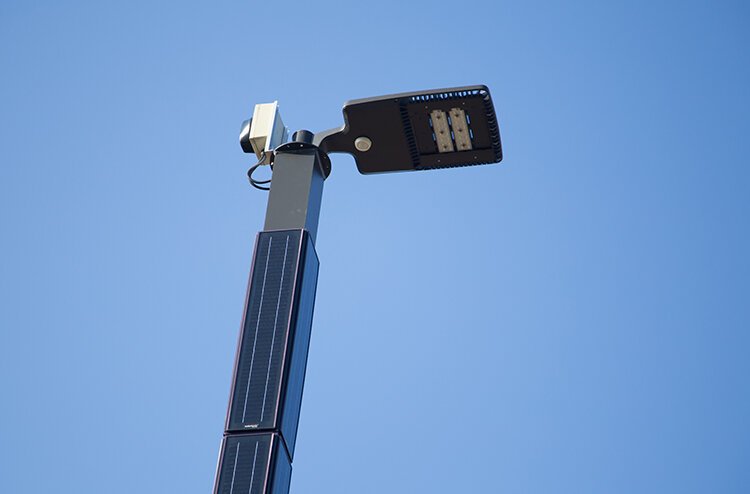
Shannon was recently recognized as a Detroit Innovation Fellow (DIF), along with several of the social entrepreneurs he was already partnering with for projects in the village, identifying him as a mover and shaker in the development landscape. He says it felt like validation.
“I think my project is so huge and diverse that it sometimes scares people and they are not sure how to grasp the concept, or me,” Shannon says. “Of the various opportunities that I have been presented with since starting Parker Village, being a [DIF] is a huge recognition of the work that I and my team do for the love of our community every day.”
Parker Village, while a for-profit initiative, partners with non-profit groups to succeed, and grants like the $10,000 funding from DIF help keep the project rolling. Shannon estimates the initiative has raised $200,000 so far with crowdfunding, personal investment, and grant money, but says that’s just the beginning.
“We have the opportunity to get a Property Assessed Clean Energy (PACE) loan,” he says. “It’s a $1.25 million loan guarantee, but we have to match it with $1.75 million. That would get the main campus building done.”
Parker Village has just committed to adding five more solar smart streetlights, and Shannon hopes an investor will step in to redevelop the proposed residences.
“We are an opportunity zone and I have had the area rezoned by the city as multi-use, just before we put in an offer to purchase the rest of the block from the city, a few months before [COVID-19] hit,” says Shannon. “We are still waiting on the mayor, city administrator, and council, who have been supportive thus far of the project and the new housing and citizens it will bring.”
He estimates the total project costing $15 million to $20 million and sees himself as part of a bigger picture.
“Between what I am doing at Parker Village, what Mama Shu is doing at Avalon [Village], Jackson [Koeppel] at Soulardarity, it will help to redevelop the city.”
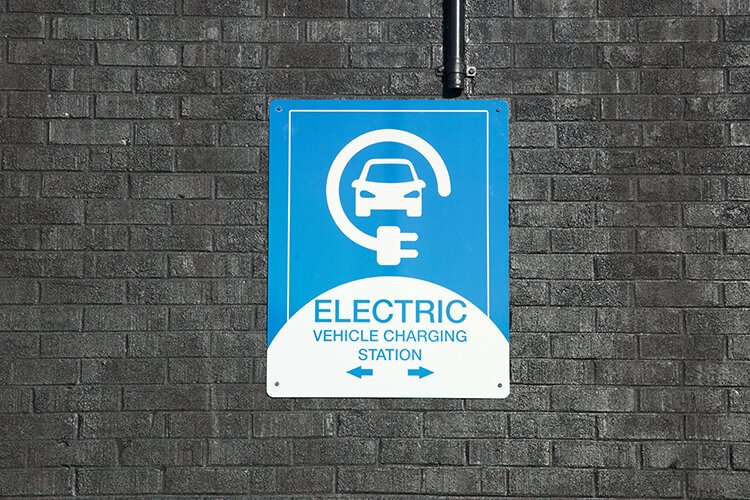
Shannon knows it takes lots of little connections. This weekend his team was out on Halloween handing out candy in a drive-through station at the village site in an annual giveaway used to engage with the community.
COVID-19 restrictions have, if anything, demonstrated that need for connection, and candy isn’t all that Shannon has been handing out. Partnering with the Highland Park Community Crisis Coalition, Avalon Village, and Detroit2Nepal Foundation, Shannon and his team have been distributing food supplies for local residents during the pandemic.
Next spring and summer Shannon hopes the village’s farm will be ready for commercial production, supplying the cafe and a farmers market as well as selling à la carte produce. If this year’s experiment growing cucumbers, kale, and collards is anything to go by, he says it should be a success.
“We grew a lot more this summer than we could use in this experiment,” he says.
For now, Shannon feels a growing sense of optimism in Highland Park, despite the pandemic, the hard work he knows is necessary, and the barriers he encounters.
“We are really fighting a lot of stereotypes, people outside of the community voice their opinions without having the facts,” he says. “Highland Parkers who have experienced what it used to be really have a deep sense of pride in the community and its people, that’s what we are attempting to return.”
“We want the cosmetics of the city to match that pride.”
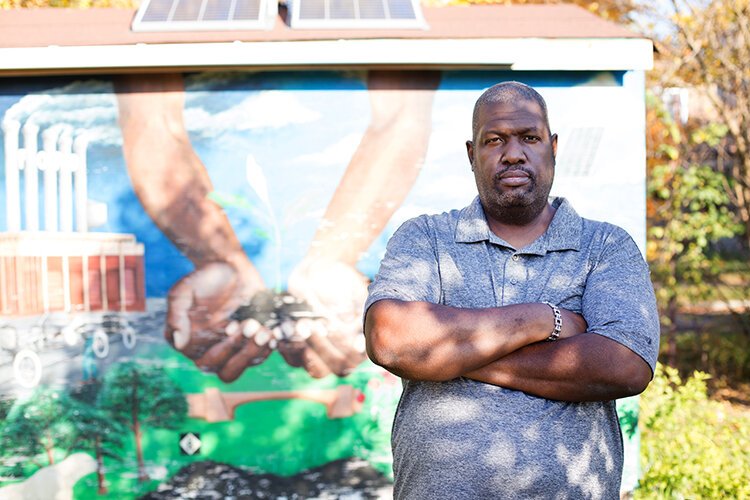
This is part of a series supported by the New Economy Initiative (NEI), a special project of the Community Foundation for Southeast Michigan that is working to build an inclusive regional network of support for entrepreneurs and small businesses. Social entrepreneurs featured in this series are fellows of the last cohort of NEI’s Detroit Innovation Fellowship (DIF), a talent development program that connects, promotes, and invests in people who are leading projects to transform their communities.
